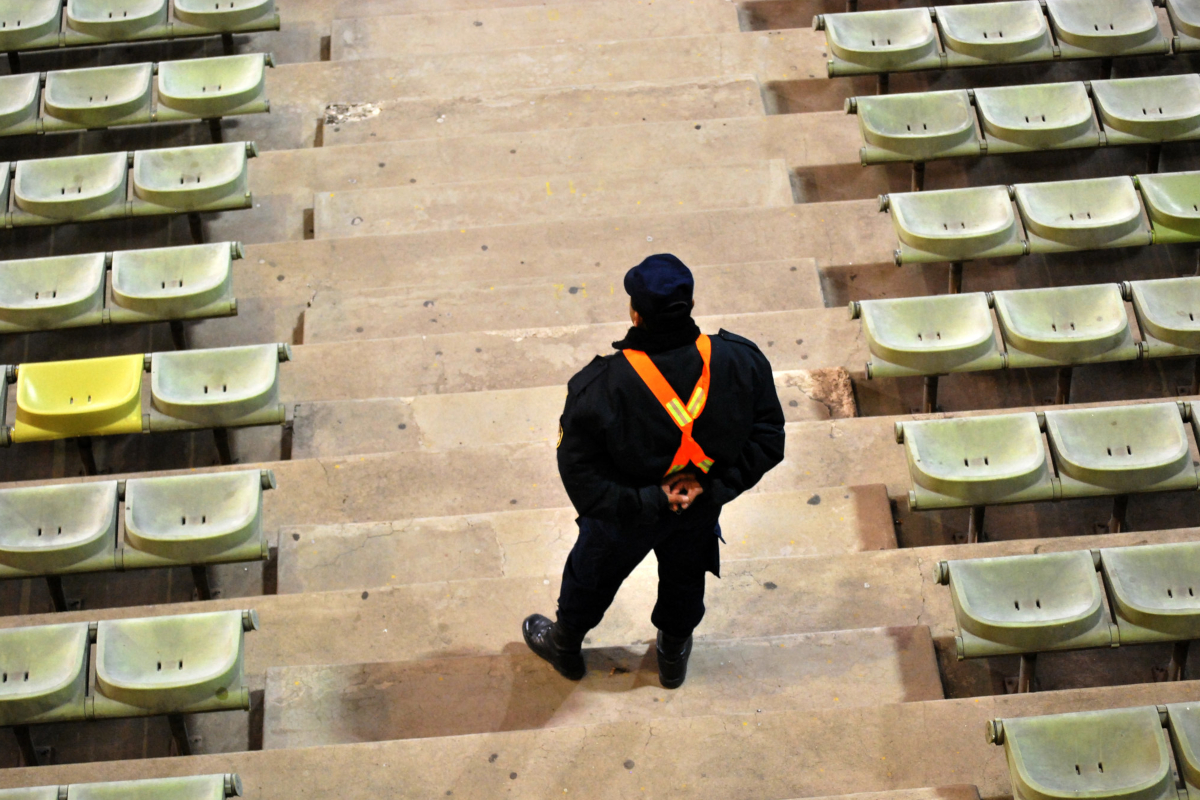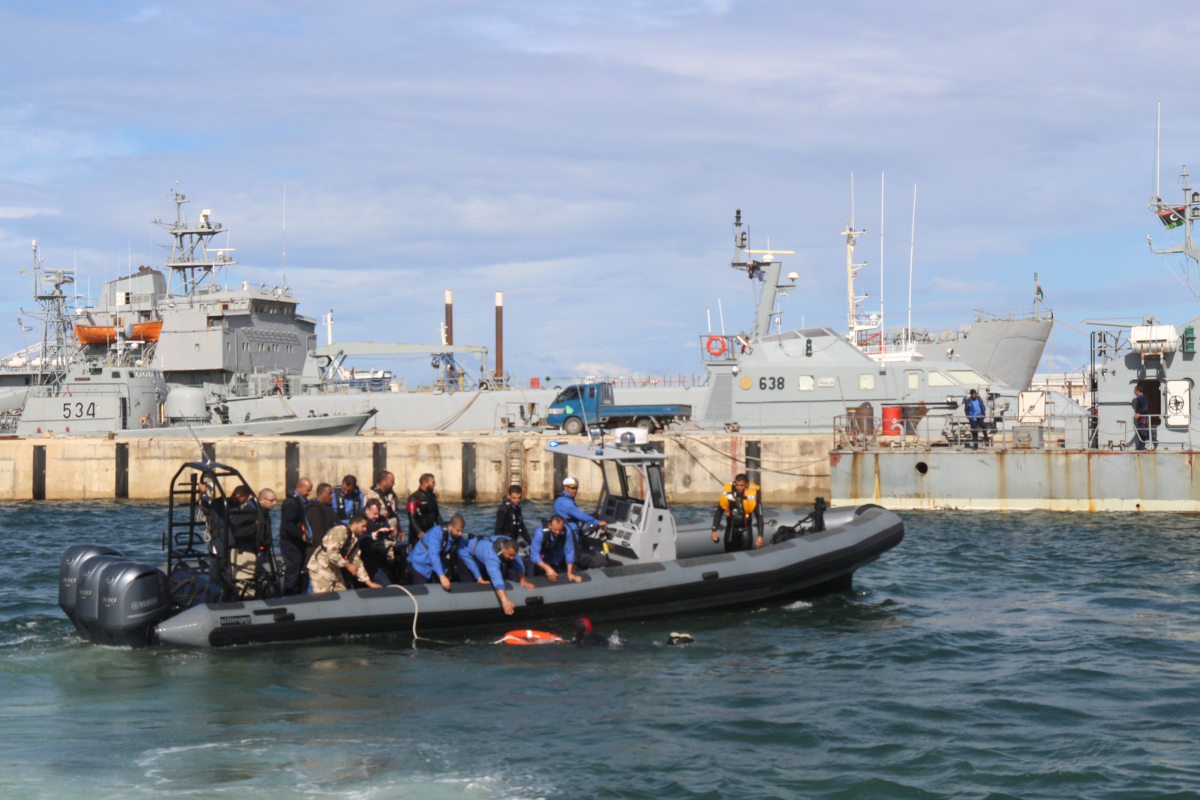Tarajal Manifesto 2023: justice for the dead
Topic
Country/Region
04 February 2023
Today, the 10th March For Dignity will take place in Ceuta to commemorate and demand justice for the 14 people who died attempting to cross the border into Spain on 6 February 2014. The Tarajal Manifesto 2023 has been produced to mark the occasion.
Support our work: become a Friend of Statewatch from as little as £1/€1 per month.
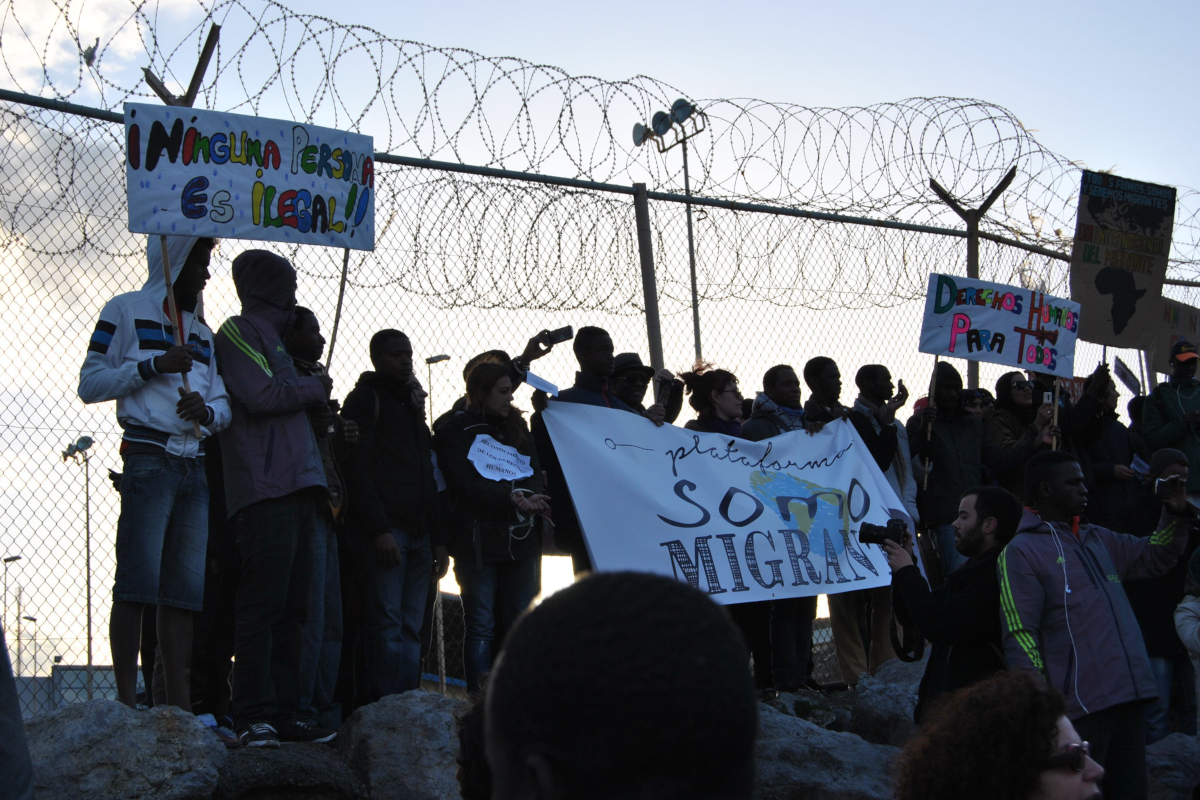
Image: Laura Ortiz, CC BY-SA 2.0
MANIFESTO TARAJAL 2023
Today, as we have done every February for the last 9 years, we gather on this beach of El Tarajal to demand justice for the deaths of 14 of our brothers, who died due to racist migration policies.
TARAJAL WE DO NOT FORGET!
We will continue to demand justice for Yves, Samba, Daouda, Armand, Luc, Roger Chimie, Larios, Youssouf, Ousmane, Keita, Jeannot, Oumarou, Blaise, and another brother, whose name we do not know, because he is still denied the right to be identified.
Since the 6th February 2014, throughout the judicial proceedings, fundamental rights recognised in the Spanish Constitution have been and continue to be violated. After 9 years of impunity, marked by several case filings and the dismissal of the case, we have appealed to the Constitutional Court in order to act and are still waiting for a resolution.
Because justice is still not done.
Today, we also want to remember the families of those affected by this violent and racist system, who have been denied the right to truth, justice, reparation and non-repetition. The atrocity of the borders, the deaths, and the impossibility of saying goodbye are an unbearable form of torture that must be stopped through fairer policies, government action, and solidarity between every human being.
The deaths in "El Tarajal" are not an isolated event. For more than 15 years, border violence and repression have increasingly been committed by European states, specifically at the Spanish Southern Border. In 2005, when 5 people were shot dead at the Ceutan border, there was no investigation of the authorities’ actions. There was no justice.
Furthermore, 40 people died due to the actions of Spanish and Moroccan authorities - alongside the connivance of the European Union - on the 24th of June in Melilla's Chinatown. However, last December, the public prosecutor's office determined that there was no evidence of a crime and closed the case.
Despite the thousands of deaths caused by European policies of the externalisation and the closure of borders, the authorities fail to search for the people lying at the bottom of the sea; those who are marked by a date and a name written on a gravestone; those who have been left behind.
Where is the impartial justice system, which defends Human Rights, for people on the move? The justice system repeatedly fails to protect and guarantee the rights of migrants (people on the move)?
We will never stop denouncing the violence exercised at borders, the lack of access to international mobility, and the disproportionate disenfranchisement of people from the Global South. We will never stop denouncing the disinformation strategies that dehumanise and criminalise those who exercise their right to migrate; those who seek protection or a better future.
In the face of discourses that legitimise racism and facilitate impunity; in the face of migration practices and policies that claim the lives of thousands of people every year, we state that:
- Finding solutions to administrative irregularity is necessary and urgent, since illicit practices expose people to exploitation and instability.
- We must prevent the Spanish Government from changing the application procedure for international protection which would allow them to detain applicants, for up to ten days, while their documents are examined. Applying for international protection is a human right.
- Respect for the right to asylum, children's rights, and all other human rights is possible with political will.
In addition to the above, we demand:
- Sufficient and effective protection resources for people seeking refuge and facing human trafficking.
- The closure of detention centres for foreigners (CIE). We reject the construction of racist prisons, such as that in Algeciras, because an administrative offence is not a crime and does not justify the imprisonment of anyone.
- The creation of legal and safe migratory routes that do not put people's lives at risk.
Despite suffocating systemic and structural racism that differentiates human beings according to the colour of their skin, we will keep claim that people are born free and equal, in terms of respect and rights.
NO MORE VIOLENCE AT THE BORDERS; MIGRATION IS A RIGHT!
Our work is only possible with your support.
Become a Friend of Statewatch from as little as £1/€1 per month.
Further reading
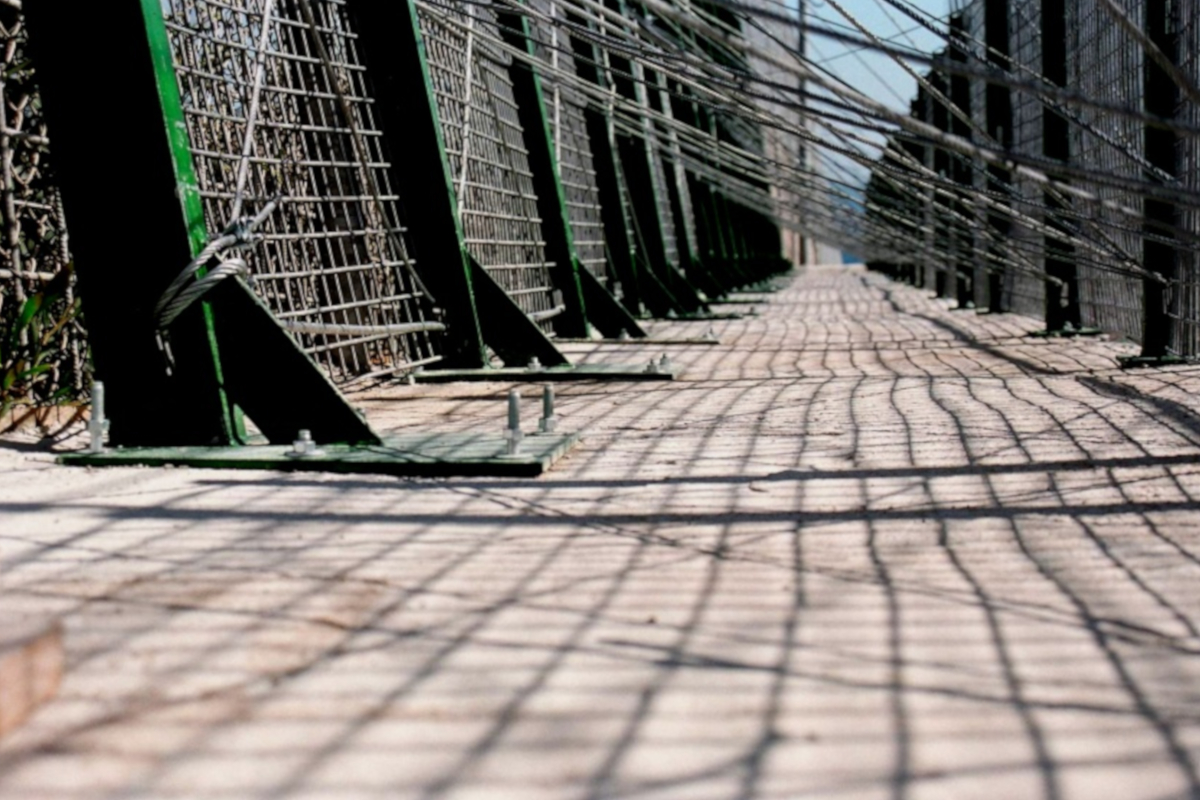
The Melilla border deaths represent a new phase in the bloody story of Fortress Europe
On 24 June dozens of people died after attempting to cross the heavily-fortified border from Morocco into the Spanish enclave of Melilla. A report by the Nador branch of the Association Marocain des Droits Humains (AMDH), summarised and built upon here, examines the build-up to and immediate aftermath of the deadly incident. The report documents multiple human rights violations and also reveals a significant shift: from EU authorities undertaking pushbacks and leaving people to their fate in situations in which they may come to harm, to EU authorities undertaking pushbacks with the explicit knowledge that they would be beaten and treated in an inhumane and degrading manner by their non-EU ‘partners’.
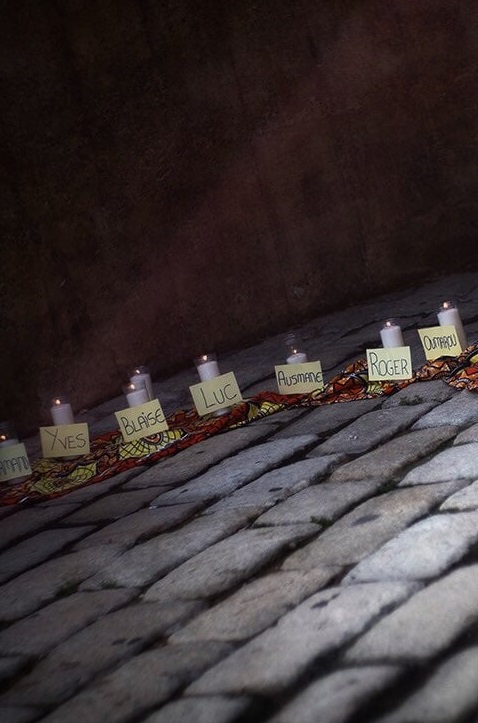
Tarajal memorial protests: "Faced with their deadly policies: we remember, defend life and demand rights"
On 6 February the eighth annual march to commemorate the deaths of at least 14 people trying to cross the border at Tarajal beach, in the Spanish enclave of Ceuta, took place. Demonstrations were held in Ceuta and Melilla, cities across the Spanish mainland, as well as in Frankfurt and Dakar. A manifesto published on the day of the protests calls for "a Europe that is open to diversity, which invests resources into receiving and regulating instead of controlling, arresting and deporting."
After six long years, no justice for border deaths and pushbacks to Morocco from Spain
Sixteen Guardia Civil officers have walked free from court in Cádiz following a ruling that there is insufficient evidence to prosecute them for their involvement in the deaths of 15 people who tried to reach Spanish territory by sea, and the ‘hot return’ (summary expulsion) of 23 other people to Morocco, in February 2014.
Spotted an error? If you've spotted a problem with this page, just click once to let us know.
